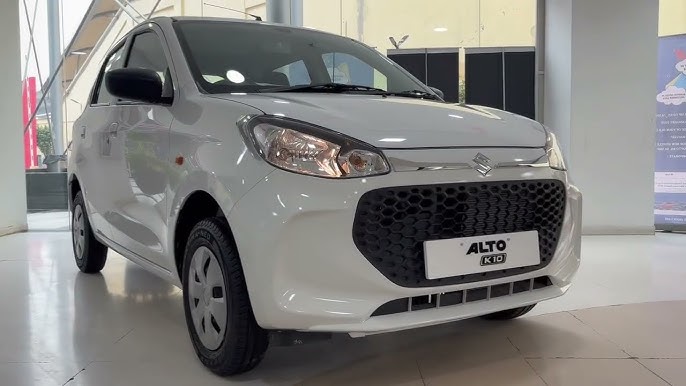The Indian automotive industry is witnessing a remarkable transformation as electric vehicles become mainstream. Hyundai, already a strong competitor in the EV segment with models like the Kona Electric and IONIQ series, is preparing to revolutionize the compact SUV market with its much-awaited Hyundai Creta EV 2025. Expected to bring advanced electric technology, a premium cabin, bold styling, and competitive pricing, the Creta EV 2025 is set to be a game-changer.

This article provides a 3000-word in-depth explanation covering design, range, battery technology, performance, interior features, safety, charging capabilities, market expectations, and more.
Before we begin, here’s a quick overview.
Hyundai Creta EV 2025 Highlights (Table)
| Feature | Description |
|---|---|
| Platform | Electric adaptation of Creta ICE platform |
| Battery Capacity | Expected 45 kWh – 55 kWh |
| Range | Approx. 350–450 km (estimated) |
| Motor Power | Single motor setup, expected ~138–150 hp |
| Charging | Fast charging + standard home charging |
| Design Language | EV-specific grille, new DRLs, aerodynamic profile |
| Interior | Dual-screen layout, premium materials, EV-specific UI |
| Safety Features | ADAS Level 2 (expected), 6 airbags |
| Connectivity | Bluelink connectivity, EV apps, wireless features |
| Launch Timeline | Expected early–mid 2025 |
| Competitors | Tata Curvv EV, MG ZS EV, Maruti eVX |
| Expected Price | Around ₹18–25 lakh (estimated) |
| Charging Port | CCS Type-2 |
| Drive Type | FWD electric |
| USP | Affordable EV SUV with premium features |
Hyundai Creta EV 2025 – Full 3000-Word Detailed Article
1. Introduction to Hyundai’s EV Vision
As the world moves closer to greener mobility, Hyundai stands among the global leaders in EV innovation. With vehicles like the IONIQ 5 winning international awards, the company aims to introduce the same futuristic approach to mass-market segments. The Hyundai Creta EV 2025 is designed to make premium electric mobility accessible to Indian families.
2. Exterior Design: Modern, Bold, and EV-Specific
2.1 Updated Front Fascia
The Creta EV features a newly designed front end:
- Closed EV-style grille
- Sleek DRLs
- Aerodynamic bumper
- Redesigned fog lamp housing
The front appears futuristic and minimalistic, signaling its electric identity.
2.2 Side Profile
Hyundai is expected to keep the classic Creta silhouette but add:
- Aerodynamic alloy wheels
- EV-specific badging
- Smooth contours for efficiency
2.3 Rear Design
The rear gets:
- Connected LED tail lights
- New bumper design
- Subtle EV branding
Overall, the design remains modern and aerodynamic, crucial for maximizing range.
3. Dimensions and Build
The EV variant will be similar in size to the standard Creta:
- Length: ~4300 mm
- Width: ~1790 mm
- Height: ~1630 mm
- Wheelbase: ~2610 mm
This ensures:
- Comfortable seating
- Good boot space
- Urban-friendly driving
4. Battery and Range
4.1 Battery Options
Hyundai may offer two variants:
- 45 kWh battery (mid-range variant)
- 55 kWh battery (long-range variant)
4.2 Expected Range
Thanks to efficient motor tuning and aerodynamics:
- City + Highway Combined: 350–450 km
- City Range: May go above 500 km
This range makes it suitable for:
- Daily office commutes
- Long drives
- Outstation trips
5. Electric Motor & Performance
5.1 Motor Output
The Creta EV is expected to deliver:
- 138 to 150 horsepower
- Fast instant torque
5.2 Driving Feel
Users can expect:
- Smooth acceleration
- Silent drive
- Traffic-friendly response
- Comfortable cruising on highways
5.3 Drive Modes
Likely options:
- Eco
- Normal
- Sport
- Regenerative braking modes
6. Charging Capabilities
6.1 Fast Charging
With DC fast charging, the Creta EV could charge:
- 0–80% in 40–50 minutes
6.2 Home Charging
AC home charger:
- 7–8 hours for full charge
6.3 Public Charging Compatibility
Supports:
- CCS2 standards
- Fast chargers
- Public stations
7. Interior Design: A Premium Electric Cabin
7.1 Dashboard
Interior includes:
- Dual-screen setup
- Large 12.3-inch infotainment
- Fully digital instrument cluster
- Soft-touch panels
7.2 Seating Comfort
Features:
- Ventilated front seats
- Leather upholstery
- Spacious rear seat legroom
7.3 Cabin Technology
EV-specific features:
- Range monitoring
- Battery health analysis
- Charging scheduling
- Mobile app controls
8. Infotainment and Connectivity
Hyundai’s Bluelink technology allows:
- Remote lock/unlock
- Remote charging monitoring
- Climate control adjustments
- Vehicle tracking
Supports:
- Android Auto
- Apple CarPlay
- Voice commands
- Over-the-air updates
9. Safety Features
9.1 ADAS Level 2 (Expected)
Features may include:
- Lane keep assist
- Adaptive cruise control
- Forward collision warning
- Blind spot detection
9.2 Standard Safety
- 6 airbags
- ABS with EBD
- Traction control
- Rear camera
10. Ride and Handling
10.1 Suspension Tuning
Expect:
- Soft suspension for comfort
- Predictable handling
- Smooth city drive experience
10.2 Steering
Light at low speeds
Stable at high speeds
11. Market Position & Competitors
The Creta EV will compete with:
- Tata Curvv EV
- MG ZS EV
- Maruti Suzuki eVX
Its advantages include:
- Trusted Creta branding
- Advanced features
- Strong dealership network
12. Expected Pricing
Estimated price range:
- ₹18 lakh to ₹25 lakh
Hyundai may offer multiple variants to appeal to different budgets.
13. Why the Hyundai Creta EV 2025 Could Be a Game-Changer
- Strong range
- Premium SUV design
- Feature-packed cabin
- Reliable brand value
- Competitive price
Hyundai aims to bring electric mobility closer to mainstream India.
Conclusion
The Hyundai Creta EV 2025 is shaping up to be one of the most important EV launches in India. With modern design, strong range, advanced features, and Hyundai’s trusted reliability, it has the potential to dominate the compact electric SUV segment. It offers everything Indian buyers look for—style, comfort, safety, and electric efficiency.
As India transitions toward electric mobility, the Creta EV stands out as a practical, future-ready, and family-friendly EV choice.
FAQs
1. What is the expected range of the Hyundai Creta EV 2025?
Approximately 350–450 km depending on battery size.
2. What is the battery capacity?
Expected between 45–55 kWh.
3. Does it support fast charging?
Yes, it supports DC fast charging with 0–80% in under an hour.
4. Will it have ADAS features?
ADAS Level 2 is expected.
5. What is the estimated price?
Around ₹18–25 lakh.
6. How many seats does it offer?
Five seats, similar to the standard Creta.
7. When will it launch?
Expected in early to mid 2025.



